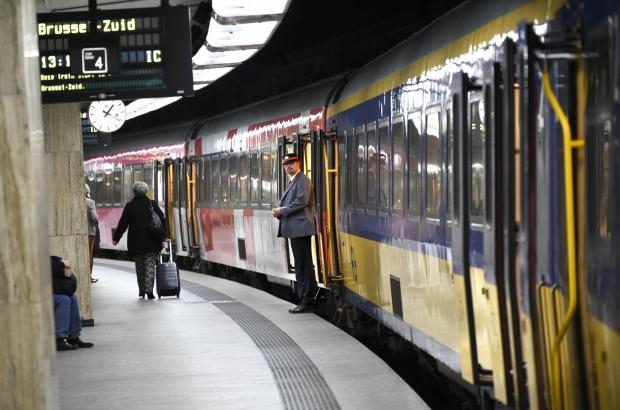- Daily & Weekly newsletters
- Buy & download The Bulletin
- Comment on our articles
Belgian trains will become more unreliable, Infrabel warns
Belgian trains will be arriving late more often, as Belgian rail network manager Infrabel has warned that it lacks the needed resources to guarantee reliability.
Infrabel’s financial forecasts are grim, L'Echo and De Tijd report. With a lack of necessary funding, the rail network manager faces tough choices. Instead of closing down lines or cutting back on safety – which Infrabel emphasised is out of the question – savings will be in engineering.
This means that the technical life of the railway's assets will have to be “stretched”. The predicted result is more breakdowns, technical defects and unpredictability in equipment.
These savings in ‘punctuality’ investments will therefore have a negative effect on trains arriving on time.
Almost one in four train delays (24.3%) were already the responsibility of Infrabel (rather than SNCB, which manages rail aspects outside of infrastructure) in November this year, compared to 19.2% in November 2021.
Federal mobility minister Georges Gilkinet (Ecolo) raised the possibility of taking out a new loan from the European Investment Bank (EIB) in order to compensate for Infrabel's lack of resources, hoping to avoid increases in delayed trains.
Gilkinet pointed to “years of underinvestment and blind linear savings” imposed on Infrabel, which he said explained the deterioration in the forecast for train punctuality.
“Since 2020, we have been reversing the trend and reinvesting in the railway network – work is under way on the entire network,” Gilkinet said.
“Improving the punctuality and reliability of the rail service is a necessity and a priority for the federal government. In the €2 billion in reinvestments that were obtained for the benefit of the railways during the last conclave, the largest share of new resources is allocated to Infrabel, including for 2023 and 2024, precisely to meet this challenge of maintaining and optimising network capacity.”
In terms of seeking help from the EIB, Gilkinet said the government would continue to work on that after management contracts for both SNCB and Infrbael are signed by the end of the year, “after 10 years of waiting and short-term politics”.



















